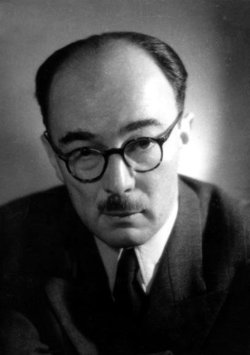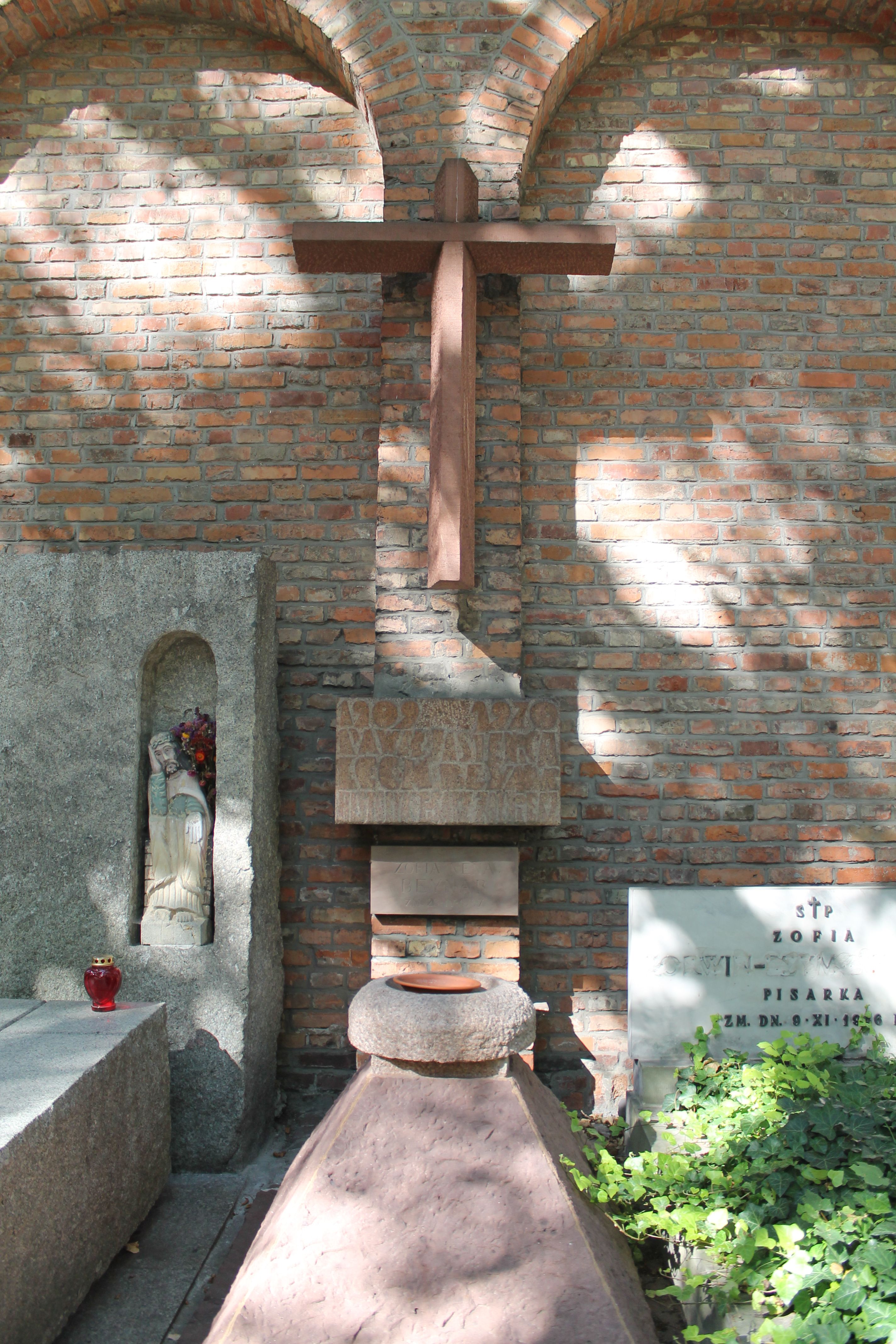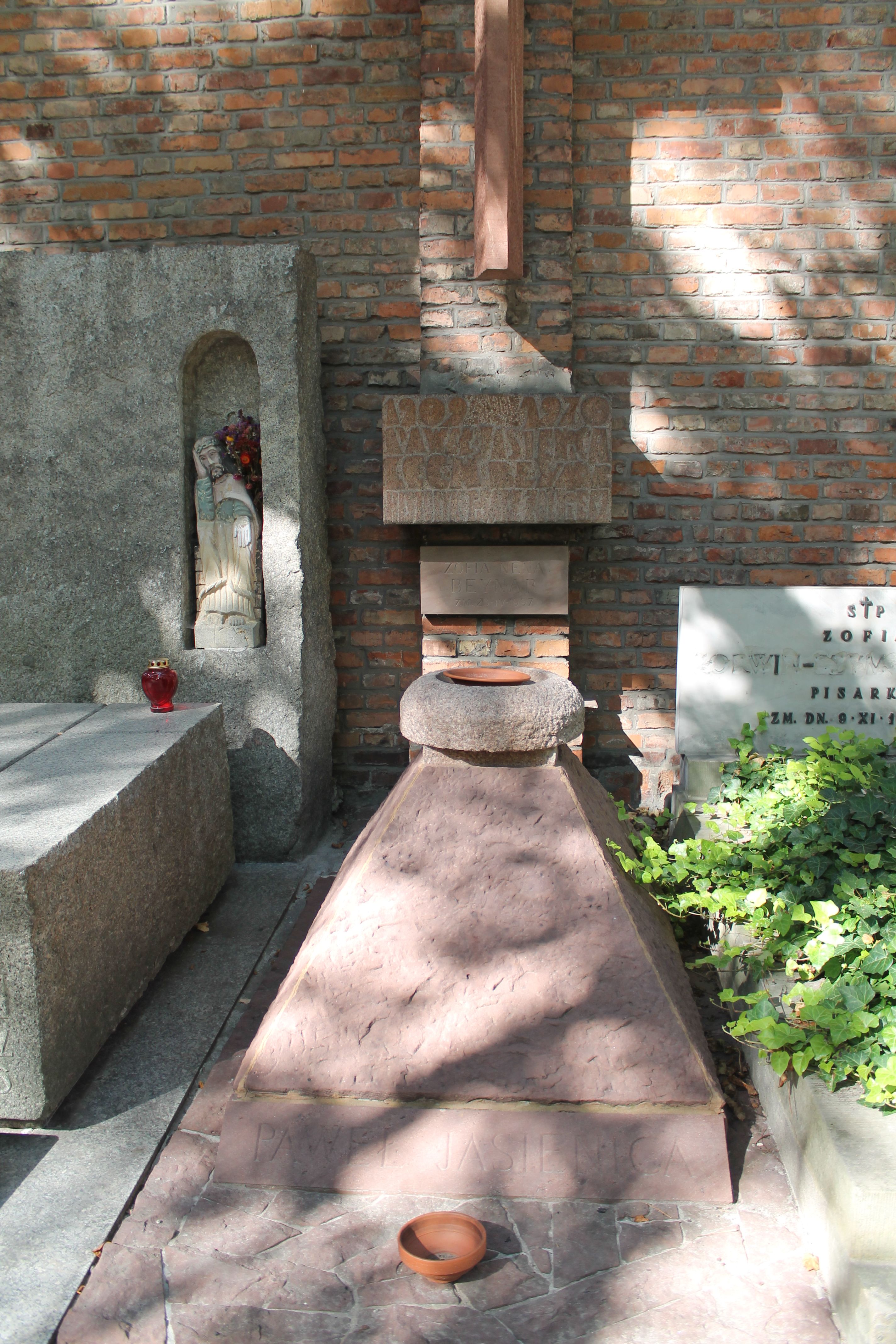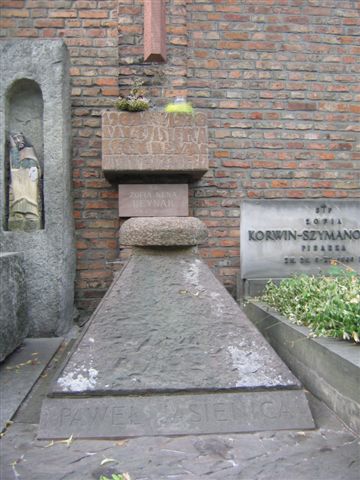Beynar was born on 10 November 1909 in Simbirsk, Russia,[1] to Polish parents, Mikołaj Beynar and Helena Maliszewska. His paternal grandfather, Ludwik Beynar, fought in the January Uprising and married a Spanish woman, Joanna Adela Feugas.[2] His maternal grandfather, Wiktor Maliszewski, fought in the November Uprising.[2] Both of his grandfathers eventually settled in the Russian Empire.[2] His father, Mikołaj, worked as an agronomist.[2] Beynar's family lived in Russia and Ukraine—they moved from Simbirsk to a location near Bila Tserkva and Uman, then to Kiev until the Russian Revolution of 1917, after which they decided to settle in the independent Poland.[3] After brief stay in Warsaw, during the Polish-Soviet War, his family settled in Opatów, and in 1924, moved to Grodno.[2]
During World War II, Jasienica (then, Leon Beynar) fought in the Polish Army, and later, the Armia Krajowa resistance. Near the end of the war, he was also working with the anti-Soviet resistance, which later led to him taking up a new name, Pawe³ Jasienica, to hide from the communist government of the People's Republic of Poland. He was associated with the Tygodnik Powszechny weekly and several other newspapers and magazines. He is best known for his 1960s books on Polish history—on the Kingdom of Poland under the Piast Dynasty, the Jagiellon Dynasty, and the elected kings of the Polish-Lithuanian Commonwealth. Those books, still popular, played an important role in popularizing Polish history among several generations of readers.
Jasienica became an outspoken critic of the censorship in the People's Republic of Poland, and as a notable dissident, he was persecuted by the government. He was subject to significant invigilation by the security services, and his second wife was in fact an agent of the communist secret police. For a brief period marking the end of his life, his books were prohibited from being distributed or printed.
Jasienica died from cancer[8] on 19 August 1970 in Warsaw. Some publicists later speculated to what extent his death was caused by "hounding from the party establishment".[12] He is buried in Warsaw's Pow¹zki Cemetery.[2] His funeral was attended by many dissidents and became a political manifestation; Adam Michnik recalls seeing Antoni S³onimski, Stefan Kisielewski, Stanis³aw Stomma, Jerzy Andrzejewski, Jan Józef Lipski and W³adys³aw Bartoszewski.[8] Bohdan Cywiñski read a letter from Antoni Go³ubiew.[2][8]
Beynar was born on 10 November 1909 in Simbirsk, Russia,[1] to Polish parents, Mikołaj Beynar and Helena Maliszewska. His paternal grandfather, Ludwik Beynar, fought in the January Uprising and married a Spanish woman, Joanna Adela Feugas.[2] His maternal grandfather, Wiktor Maliszewski, fought in the November Uprising.[2] Both of his grandfathers eventually settled in the Russian Empire.[2] His father, Mikołaj, worked as an agronomist.[2] Beynar's family lived in Russia and Ukraine—they moved from Simbirsk to a location near Bila Tserkva and Uman, then to Kiev until the Russian Revolution of 1917, after which they decided to settle in the independent Poland.[3] After brief stay in Warsaw, during the Polish-Soviet War, his family settled in Opatów, and in 1924, moved to Grodno.[2]
During World War II, Jasienica (then, Leon Beynar) fought in the Polish Army, and later, the Armia Krajowa resistance. Near the end of the war, he was also working with the anti-Soviet resistance, which later led to him taking up a new name, Pawe³ Jasienica, to hide from the communist government of the People's Republic of Poland. He was associated with the Tygodnik Powszechny weekly and several other newspapers and magazines. He is best known for his 1960s books on Polish history—on the Kingdom of Poland under the Piast Dynasty, the Jagiellon Dynasty, and the elected kings of the Polish-Lithuanian Commonwealth. Those books, still popular, played an important role in popularizing Polish history among several generations of readers.
Jasienica became an outspoken critic of the censorship in the People's Republic of Poland, and as a notable dissident, he was persecuted by the government. He was subject to significant invigilation by the security services, and his second wife was in fact an agent of the communist secret police. For a brief period marking the end of his life, his books were prohibited from being distributed or printed.
Jasienica died from cancer[8] on 19 August 1970 in Warsaw. Some publicists later speculated to what extent his death was caused by "hounding from the party establishment".[12] He is buried in Warsaw's Pow¹zki Cemetery.[2] His funeral was attended by many dissidents and became a political manifestation; Adam Michnik recalls seeing Antoni S³onimski, Stefan Kisielewski, Stanis³aw Stomma, Jerzy Andrzejewski, Jan Józef Lipski and W³adys³aw Bartoszewski.[8] Bohdan Cywiñski read a letter from Antoni Go³ubiew.[2][8]
Inscription
1909 - 1970
PAWEŁ JASIENICA
LECH BEYNAR
HISTORYK PISARZ ŻOŁNIERZ
Ś.P.
ZOFIA NENA
BEYNAR
ZM. 23.IV.1997
PAWEŁ JASIENICA
Family Members
Sponsored by Ancestry
Advertisement
Explore more
Sponsored by Ancestry
Advertisement






